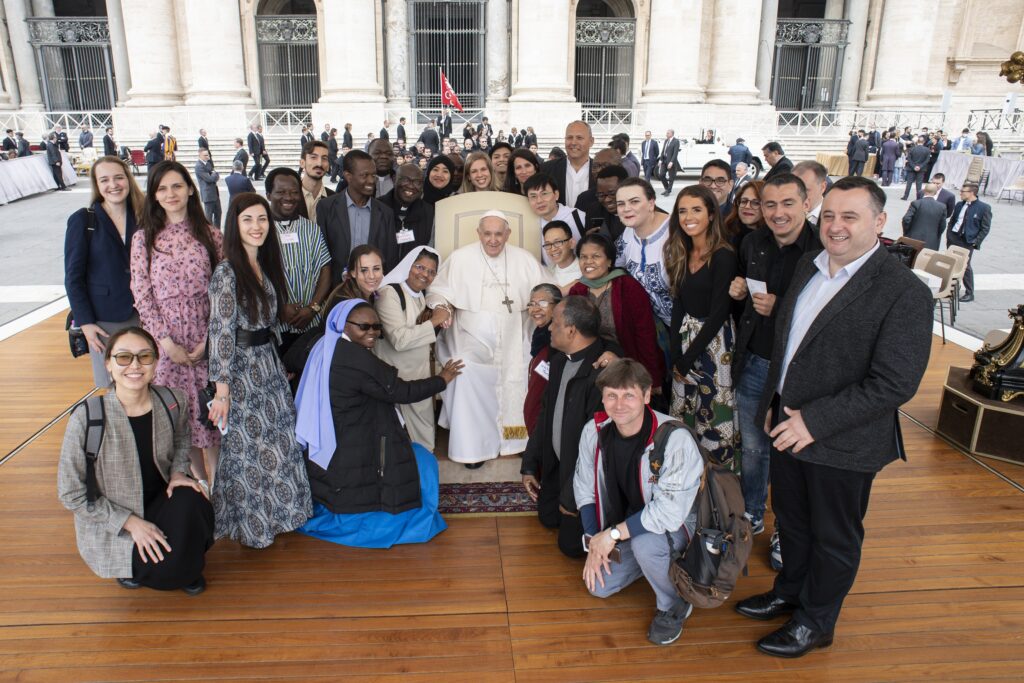For the Russell Berrie Fellows of Cohort XIV, this academic year was full of interreligious engagement and scholarly discoveries. As their Fellowship is coming to an end, we invited them to share some final reflections. The Fellows reveal the main highlights of their studies at the Angelicum, reflect on how their stay in Rome has influenced their worldviews, and how they plan to apply this interfaith experience in the future.
Cohort XIV, 2021-22
Jan Janoszka, Poland/UK
In many ways, the blend of academic input (especially the lectures with Rabbi Jack Bemporad) combined with our various experiences in Jerusalem, Bethlehem, and Nazareth, confirmed one potential form of living out a calling to interreligious dialogue. I am referring to an intentional and free choice to be immersed in the lives of those who live on the margins of our societies, e.g., the displaced or stateless persons, refugees, and those forced to be “on the move.” I would like to transfer the wealth of knowledge gained during the Russell Berrie Fellowship and STL program at the Angelicum into the context of poor communities of diverse traditions and cultures. Hopefully, I will be able to communicate the gift of faith that does justice, heals our common wounds, and helps us grow together as one human family.
Fr. Van Thien Tran, Vietnam
As a Dominican, I understand that dialogue is the synodal process of seeking the truth. It is the hope to understand the mysterious dialogue between God and men in the line of human history. Moreover, it is an effort to discover the “seed of Logos” that the Holy Spirit puts in everyone and every religion. Once I told my friend that we do not dialogue only by language but also by heart. Synodality and an open heart are essential principles for dialogue. At the Angelicum, I feel being both a student and a family member. I do hope that the knowledge gained during this academic year will assist me in my mission.
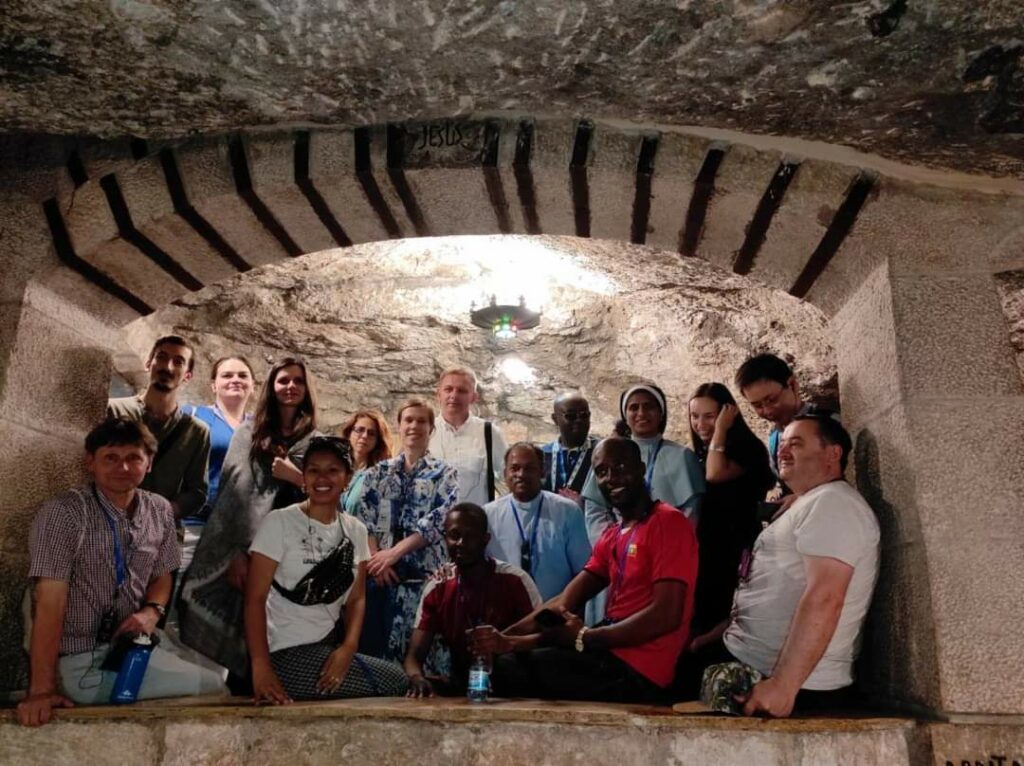
Ms. Olena Komisarenko, Ukraine
The most memorable moments during the Fellowship year in Rome were related to Jewish culture, which I could observe and join. The Sabbath dinner explained by professor Noam Zion opened a new reality of the meaningfulness and holiness of time for me. I believe this new attitude would change my lifestyle as a Christian.
Ms. Meilia Irawan, Indonesia
As a Muslim woman in Rome, I have learned a lot from my colleagues during the Fellowship. Each of them respected different views and developed a culture of discussion. I took the example of practical dialogue between various denominations that can sit together despite fundamental differences. My learning journey was enriched by people who support each other even though they have a large ideological gap. Moreover, I was interested in studying the schism because the history of church divisions provides a glimpse of the complex history of Christian theology and its development. The extraordinary experience I gained at the Angelicum will certainly be helpful for interfaith dialogue in Indonesia and necessary for our interreligious maturity.
Mr. Evans Nyamadzawo, Zimbabwe
The Russell Berrie Fellowship has changed my worldview and broadened my understanding of co-existence, religious dialogue, and peacebuilding. I benefited greatly from the academic sessions at the Angelicum, extracurricular interreligious events, internal networking sessions, and the Jerusalem study tour. I was privileged to visit a mosque and a synagogue as well. My studies at the Angelicum broadened my understanding of the Catholic teachings and relationships with believers of other faiths, namely the Jews and Muslims. I was honored to be taught by prominent experts and professors, such as Rabbi Jack Bemporad, Gavin D’Costa, and others. The program allowed me to meet and learn from other people and organizations in the interfaith field, which is a key for future collaborations.
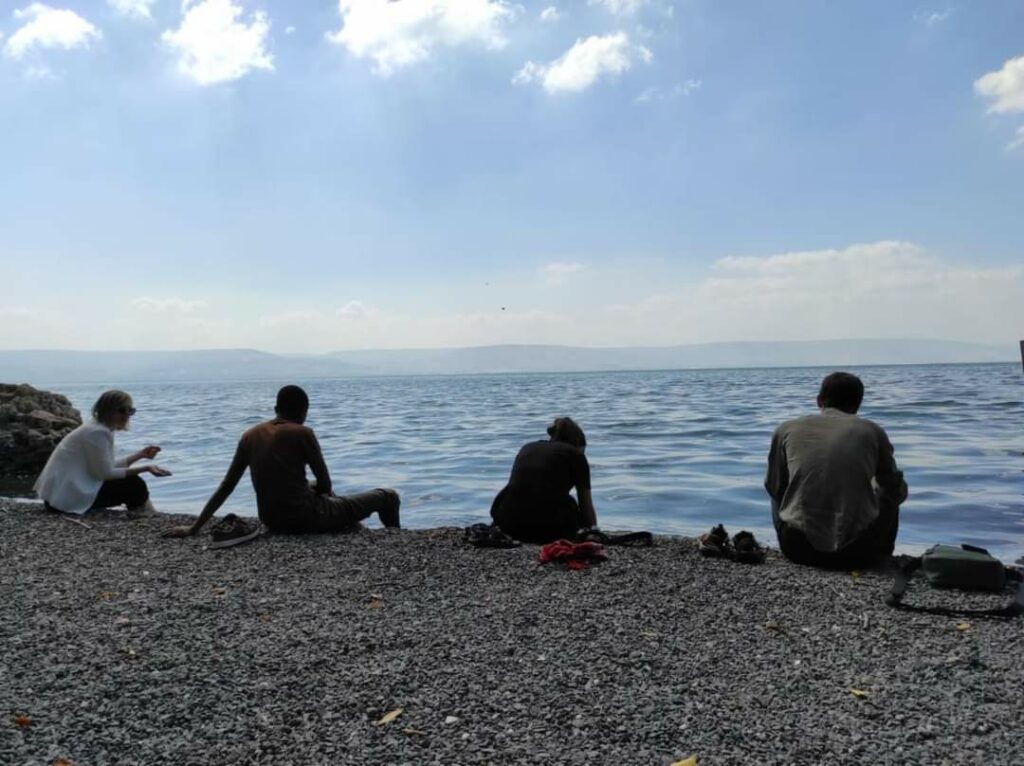
Rev. Humphrey Uche Udechukwu, Nigeria
My stay in Rome offered me an opportunity to study at the prestigious Pontifical University of St. Thomas Aquinas, Angelicum. Within this academic year, two main areas were particularly significant to me. Firstly, the academic studies which exposed me to learn more about ecumenical and interreligious dialogue. Secondly, the extracurricular activities that offered me a chance to meet with religious leaders from different faith traditions. Furthermore, my studies in Rome taught me to value and respect our common humanity and to treat people on the basis of love. Finally, I am eager to put into practice what I have learned in Rome. I plan to organize some interreligious conferences in my diocese in Nigeria to create a cordial relationship between Christians and Muslims in my country.
Fr. Norbert Lis, Poland
The topic I took up during my one-year Fellowship was human dignity seen from the perspective of Christian-Jewish dialogue. I wanted to look at my subject from many angles. But I could not separate one thought of human dignity from another, as if I were able to grasp pure Jewish thought and place it separately in one drawer, and put pure Christian thought in another, packing both of them in airtight foil. It is impossible to prove something independently, as if they have never touched each other. It would be a falsehood and a denial of the subject’s dignity. Hence, a more efficient tool in some parts became a phenomenological view of the topic from several sides after revision. I was familiar with Christian philosophy and theology, so I focused on learning about Judaism. The lectures of Rabbi J. Bemporad, Prof. A. Afterman, Prof. I. Knohl, and many others were beneficial for me. Human dignity is a topic that unites, not divides. Hence, Jewish thought walked hand in hand with Christian thought. Both traditions are and will be sewn like one garment of human dignity weaved by “two crochet knitting needles.” Such a common view will facilitate my future work on Christian-Jewish dialogue and make it more practical and active.
Another significant highlight of this year was our combined two Cohorts’ study trip to Israel. Most important for me was a wide range of possibilities to enter into dialogue in practice.
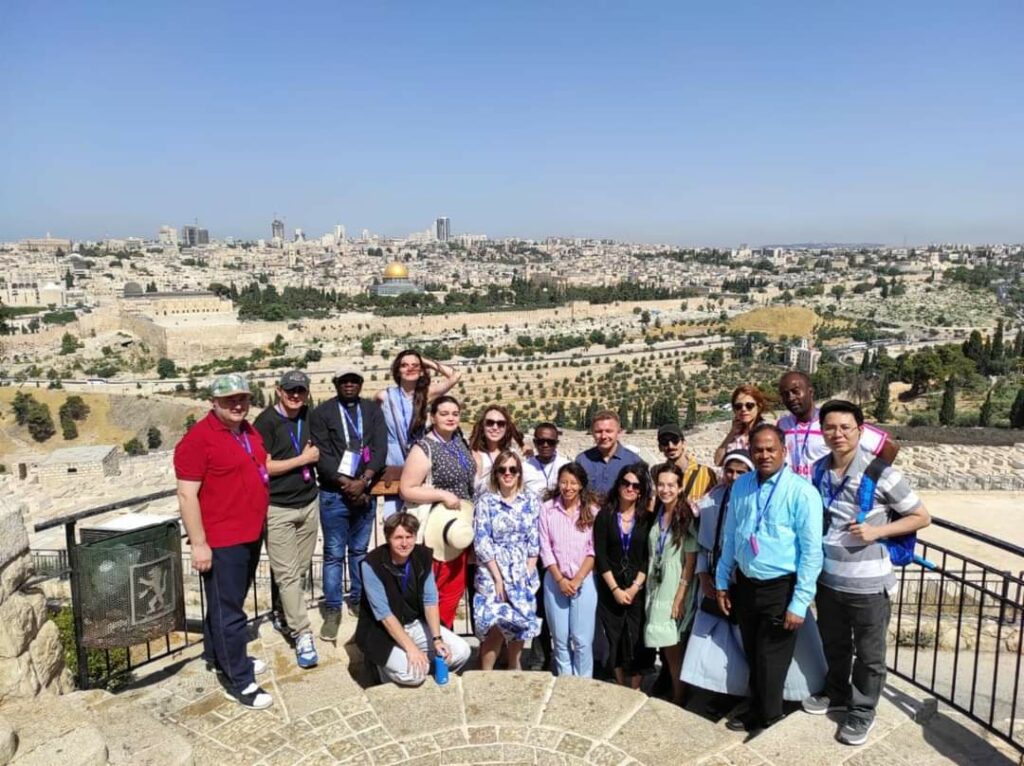
Ms. Bogdana Katarzhuk, Ukraine
Without exaggeration, a year spent at the Angelicum as a Russel Berrie Fellow changed me completely. I learned how to be open to different worldviews and revised my own. I also fought the fear of asking inconvenient questions, especially about my own faith. The year spent in Rome became for me a period of renewal in many senses. Undoubtedly, I will continue to apply the knowledge acquired during the Fellowship both in politics and art; now it gains additional importance for me as interreligious dialogue can also be applied as an additional basis for unity in my homecountry, Ukraine.
Ms. Diana Marinescu, Romania
As someone who spent all her life in universities and libraries and enjoyed several scholarships abroad, I can say that my year as a Russell Berrie Fellow at the Angelicum was the most fruitful experience as a student. From the very beginning, I was impressed by the general atmosphere: for a person with a lay scholar background, studying in a confessional and theological university with religious staff made me feel…home. It is so because we all believe in God and are sensitive to religious issues, because we all organize our lives around religious values and because we all try to find solutions to today’s world problems.
Then, entering in contact with outstanding professors, who are high-ranked Christian and Jewish scholars, and actively engaged in the field of interfaith and ecumenical dialogue, made me feel the actual pulse of this dialogue. Afterwards, encountering students at the Angelicum from all around the world (Chinese and Indians, Vietnamese and Argentinians, Poles and Russians, Irish and Hungarians, Americans, Nigerians, Congolese, Indonesians, Georgians and Peruvians etc.), belonging to such different cultural and religious backgrounds and traditions was enlightening for me since I come from a country which culturally and religiously is rather uniform. It is hard, if not impossible, to fully understand cultural and religious diversity unless you come in contact with it – and this was the greatest advantage of my studies at the Angelicum.
Another thing that really impressed me is the spirit of friendship and fraternity established between us, the Russell Berrie Fellows (and JPII Leaders). I felt we all were one, like a body with multiple brains but one heart. We studied, prayed, joked, ate and had a lot of coffee, museum and church visits together. I must confess that all these opened my taste for joint projects in the future, for I realized that power resides in unity and common witness.
The other event which was life-changing for me was the Israel study tour. Everything was so densely packed there that I will need many months from now on in order to digest what I witnessed and lived: the encounter with so many scholars and rabbis, their amazing stories, an extraordinary religious diversity (probably unique in the world), the sanctity surrounding the Holy Places (especially the Holy Sepulchre and the Western Wall), the warmth and the chromatic melisma of the muezzins’ call to prayer in the afternoon, the exquisite and unrealistic beauty of the Galilean landscapes which made me actually realize why these places were the Promised Land, the heart-breaking story behind Yad Vashem, the pulse of a vivid and genuine Jewish culture with tallits and tefillins, kippahs and payot, with its Sabbath men’s dancing and singing and its delicious kosher food, and finally the tragic avatars of the Israeli-Palestinian conflict in one of the most political-sensitive places in the world.
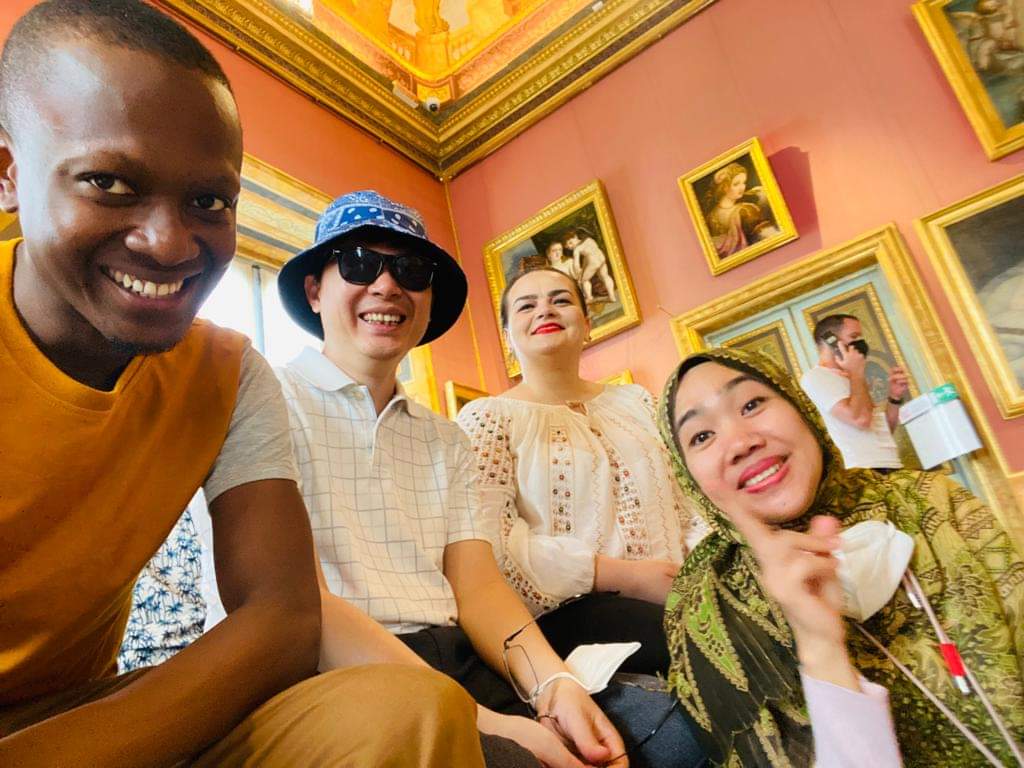
We are proud of our Fellows and excited to welcome them to the network of JPII Leaders worldwide. Heartfelt blessings on your interfaith ministries and future achievements!

